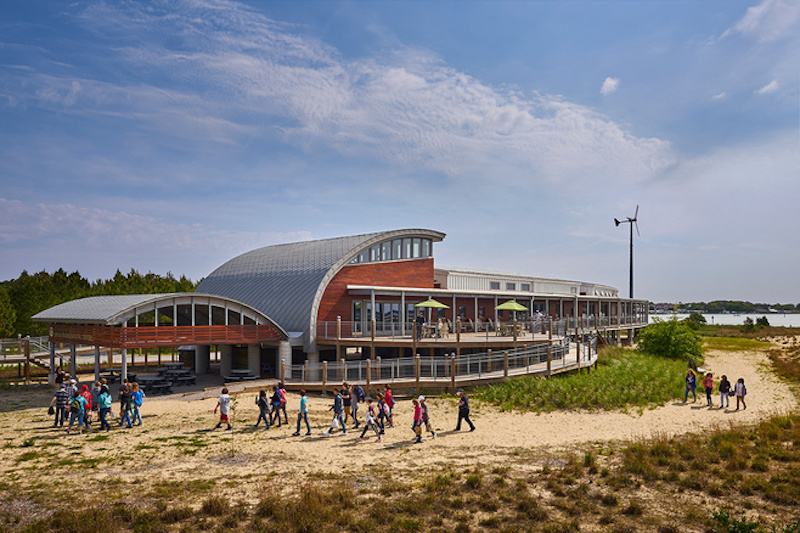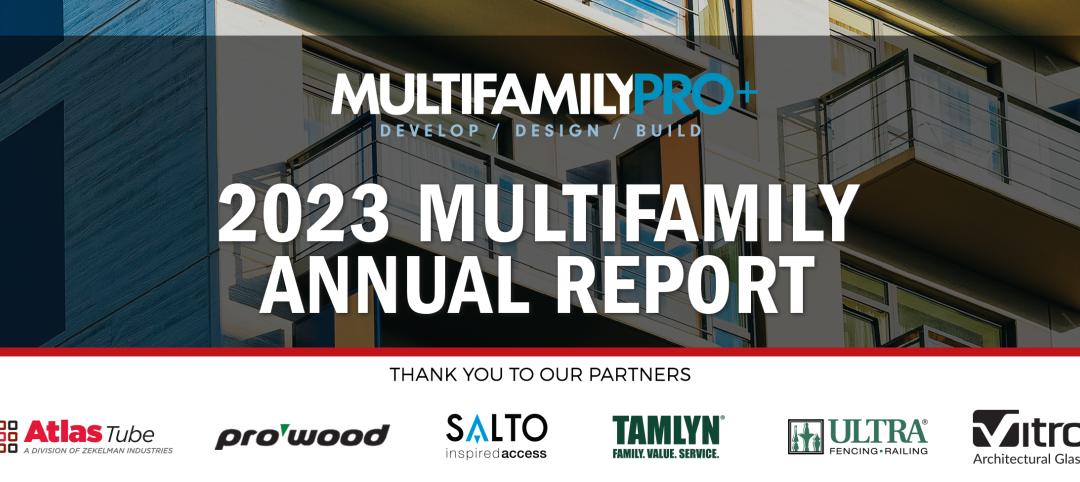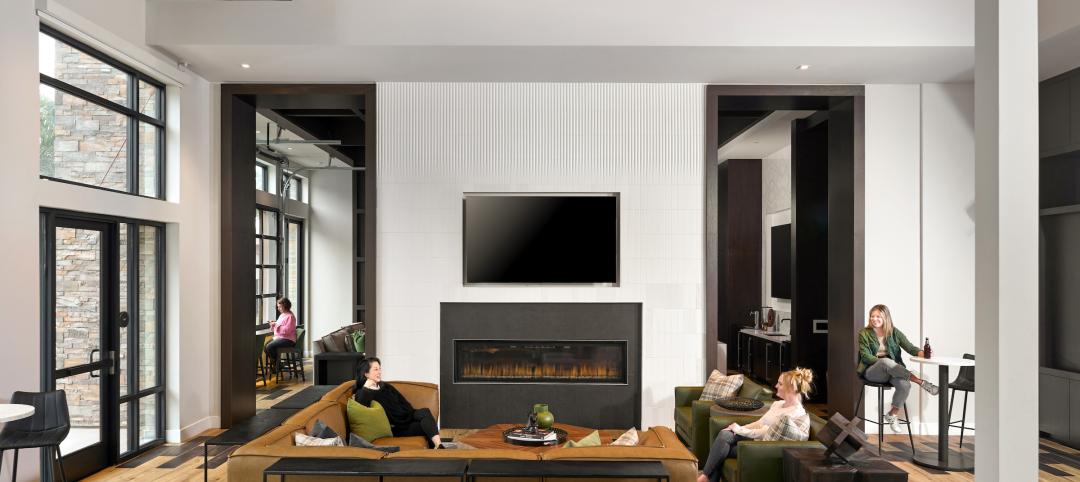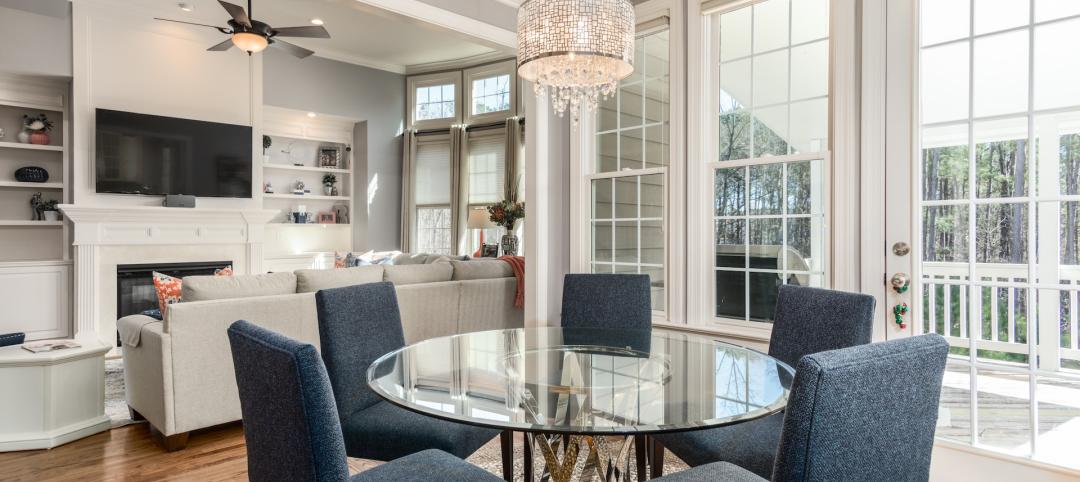The easiest and most cost-effective strategies in sustainable design—daylighting, optimal building orientation, a tight envelope, super-efficient HVAC systems, LED lighting—are taken for granted today. AEC leaders in green building are stepping up to a higher level of innovation.
TOP 130 GREEN BUILDING ARCHITECTURE FIRMS
Rank, Firm, 2015 Revenue
1. Gensler $768,470,000
2. Stantec $331,794,291
3. HOK $280,570,000
4. Perkins+Will $195,460,000
5. Skidmore, Owings & Merrill $175,140,374
6. HKS $163,696,602
7. EYP $137,479,466
8. SmithGroupJJR $122,636,361
9. CallisonRTKL $104,462,061
10. CannonDesign $69,400,000
TOP 90 GREEN BUILDING CONSTRUCTION FIRMS
Rank, Firm, 2015 Revenue
1. Turner Construction Co. $5,701,000,000
2. Clark Group $2,620,000,000
3. Hensel Phelps $2,286,280,000
4. Skanska USA $1,941,400,000
5. Swinerton Inc. $1,918,000,000
6. Gilbane Building Co. $1,746,261,000
7. Whiting-Turner Contracting Co., The $1,600,777,900
8. Suffolk Construction Co. $1,514,705,316
9. Structure Tone $1,460,800,000
10. Holder Construction Co. $1,335,000,000
TOP 60 GREEN BUILDING ENGINEERING FIRMS
Rank, Firm, 2015 Revenue
1. Jacobs $203,161,333
2. AECOM $200,900,000
3. Arup $168,783,060
4. Thornton Tomasetti $67,382,221
5. Syska Hennessy Group $32,420,857
6. Burns & McDonnell $24,341,832
7. Vanderweil Engineers $23,508,800
8. Smith Seckman Reid $20,189,000
9. DeSimone Consulting Engineers $19,799,641
10. Dewberry $19,159,460
GREEN GIANTS SPONSORED BY:
Some have created tools that aid designers’ ability to more precisely compare the projected energy performance of various design concepts, materials, and equipment choices. Designers can kick the tires on an array of options early in the design process.
Occupant wellness and comfort have also gained increasing prominence, especially since the signing of a partnership between the International WELL Building Institute and the U.S. Green Building Council in 2014. “If it doesn’t enhance the wellness of occupants, it’s not really sustainable,” says Mike Szabo, OAA, AIBC, Principal, Diamond Schmitt Architects.
To be a green leader today, you have to dig deeper into data. For Diamond Schmitt, existing energy models only go so far. “We have a diverse portfolio, and we don’t do prescriptive design,” Szabo says. To improve the quality of data for its project types, the firm, in collaboration with the engineering firm RWDI, developed a visual database with energy simulation models. The models take energy-load information from the firm’s portfolio and extrapolate predictive data that is used in the early stages of design.
“There are a series of filters—location, heating, process loads, etc.—so you can drill down beyond a single measure of energy usage per square meter,” Szabo says. “This allows us to ask the right questions about the core issues that make projects perform more efficiently.”
On a recent master-planning project for a mixed-use development, the tool helped the firm and the client choose from among three possible site configurations to find the best orientation for energy efficiency.
ZGF Architects has also found existing databases, such as Energy Star, lacking. The firm specializes in the design of hospitals, laboratories, and research facilities, all of which have higher-than-average energy loads. “The actual performance of these buildings is driven largely by the program,” says Associate Partner Vikram Sami, AIA, BEMP, LEED BD+C.
Using publicly available data from the Department of Energy, ASHRAE, and its own projects, ZGF developed an energy-load database for such project types. The data is stored on Microsoft Excel and maps to Revit. Designers filter the data according to the program of individual spaces—climate, equipment loads, and other factors—to get fairly reliable answers to what-if questions about energy demand and savings. ZGF’s Energy Programming Dashboard helps its designers obtain energy load information on individual pieces of equipment—pumps, heating units, lighting fixtures—which can then be combined to create the optimal aggregation of equipment.
on the wellness front
ZGF has teamed up with researchers at the University of Washington on Lark Spectral Lighting. The tool allows designers to use spectral data to define how the quality of light impacts not only a physical space, but also the occupants. The color and quality of light affect humans’ circadian rhythms, sleeping patterns, and alertness, which can impact employee productivity.
“The spectral content of light sources changes as the light bounces off of surfaces,” says ZGF Associate Ed Clark, LEED AP BD+C. The choice of materials and color schemes for ceilings, walls, floors, and furniture influences the quality of light. Darker colors absorb light; lighter colors are more reflective. The Lark tool (free download at: www.food4rhino.com/project/lark) provides a model that helps designers configure optimal combinations of lights and interior materials.
How architectural features impact wellness is an ever-growing competitive consideration for AEC firms that design and construct new office space. KSS Architects encountered this in its work for Burlington Stores.
The off-price retailer wanted its new headquarters in New Jersey to appeal to Millennials. KSS’s design encourages workers to get out of their chairs and move about the facility during the day. A large café has extensive indirect daylighting, bright colorscapes, and long, European-style tables. The space is busy throughout the workday, not just at mealtimes, notes Ed Klimek, AIA, NCARB, Partner, KSS Architects.
Small nooks outfitted with furniture are spread throughout the building. Outdoor seating is arranged on the north side of the structure. These features are tailored especially for the young professionals accustomed to working untethered from their desks. “The design was a response to an emerging generation of people with new expectations of what a workplace should be,” Klimek says.
Elevators are pushed to the side of a large, sweeping staircase to encourage employees to take the stairs. Spaces that foster physical activity—and add variability to workspaces, seating postures, and scenery—are believed to promote a healthier style of work.
The project included many LEED-blessed approaches, but the owner chose not to apply for certification. “It’s less about getting the plaque and more about how design can have a direct impact on sustainability, wellness, and saving money,” Klimek says. “It’s about looking for unique ways your project can address sustainability, not because they are cool, but because they matter.”
RETURN TO THE GIANTS 300 LANDING PAGE
Related Stories
MFPRO+ Special Reports | Oct 27, 2023
Download the 2023 Multifamily Annual Report
Welcome to Building Design+Construction and Multifamily Pro+’s first Multifamily Annual Report. This 76-page special report is our first-ever “state of the state” update on the $110 billion multifamily housing construction sector.
Giants 400 | Oct 23, 2023
Top 190 Multifamily Architecture Firms for 2023
Humphreys and Partners, Gensler, Solomon Cordwell Buenz, Niles Bolton Associates, and AO top the ranking of the nation's largest multifamily housing sector architecture and architecture/engineering (AE) firms for 2023, as reported in Building Design+Construction's 2023 Giants 400 Report. Note: This ranking factors revenue for all multifamily buildings work, including apartments, condominiums, student housing facilities, and senior living facilities.
Affordable Housing | Oct 20, 2023
Cracking the code of affordable housing
Perkins Eastman's affordable housing projects show how designers can help to advance the conversation of affordable housing.
Senior Living Design | Oct 19, 2023
Senior living construction poised for steady recovery
Senior housing demand, as measured by the change in occupied units, continued to outpace new supply in the third quarter, according to NIC MAP Vision. It was the ninth consecutive quarter of growth with a net absorption gain. On the supply side, construction starts continued to be limited compared with pre-pandemic levels.
Warehouses | Oct 19, 2023
JLL report outlines 'tremendous potential' for multi-story warehouses
A new category of buildings, multi-story warehouses, is beginning to take hold in the U.S. and their potential is strong. A handful of such facilities, also called “urban logistics buildings” have been built over the past five years, notes a new report by JLL.
Building Materials | Oct 19, 2023
New white papers offer best choices in drywall, flooring, and insulation for embodied carbon and health impacts
“Embodied Carbon and Material Health in Insulation” and “Embodied Carbon and Material Health in Gypsum Drywall and Flooring,” by architecture and design firm Perkins&Will in partnership with the Healthy Building Network, advise on how to select the best low-carbon products with the least impact on human health.
Contractors | Oct 19, 2023
Crane Index indicates slowing private-sector construction
Private-sector construction in major North American cities is slowing, according to the latest RLB Crane Index. The number of tower cranes in use declined 10% since the first quarter of 2023. The index, compiled by consulting firm Rider Levett Bucknall (RLB), found that only two of 14 cities—Boston and Toronto—saw increased crane counts.
Office Buildings | Oct 19, 2023
Proportion of workforce based at home drops to lowest level since pandemic began
The proportion of the U.S. workforce working remotely has dropped considerably since the start of the Covid 19 pandemic, but office vacancy rates continue to rise. Fewer than 26% of households have someone who worked remotely at least one day a week, down sharply from 39% in early 2021, according to the latest Census Bureau Household Pulse Surveys.
Luxury Residential | Oct 18, 2023
One Chicago wins 2023 International Architecture Award
One Chicago, a two-tower luxury residential and mixed-use complex completed last year, has won the 2023 International Architecture Award. The project was led by JDL Development and designed in partnership between architecture firms Goettsch Partners and Hartshorne Plunkard Architecture.
Giants 400 | Oct 17, 2023
Top 130 Sports Facility Architecture Firms for 2023
Populous, Gensler, HOK, and HKS head BD+C's ranking of the nation's largest sports facility architecture and architecture/engineering (AE) firms for 2023, as reported in Building Design+Construction's 2023 Giants 400 Report.


















